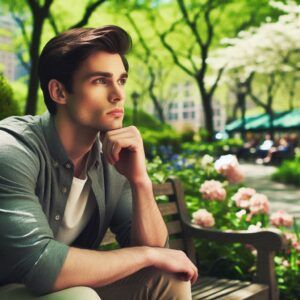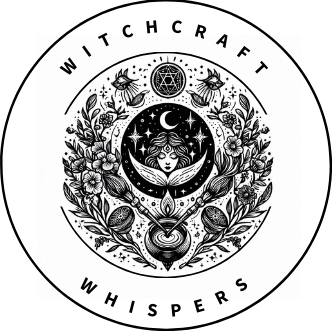If you’ve been exploring the world of modern paganism or witchcraft, the Wiccan Rede probably popped up early in your adventure. The phrase is short but packs a meaningful punch: “An it harm none, do what ye will.” This idea sits at the center of Wiccan practice, shaping how followers approach ethics and everyday choices. While the wording seems simple, there’s a lot to unpack about what the Rede really means, how people interpret it, and why it’s often the subject of so much conversation and debate.

What the Wiccan Rede Actually Means
The Wiccan Rede’s main message, “harm none,” sounds pretty straightforward, but there’s more going on underneath the surface. Some folks take it as a hard rule to never hurt anything or anyone, while others see it as a guideline rather than a totally strict law. It’s a super flexible principle that leaves room for personal belief and responsibility.
When I first read the Rede, I figured it just meant “be a decent human being.” But as I learned more, it became clear that what counts as “harm” isn’t always easy to pin down. For example, is swatting a mosquito really causing harm? What about making a choice that helps you but inconveniences someone else? People in the Wiccan community often have their own takes, which makes for some interesting conversations.
What does the Wiccan Rede mean? In its broadest sense, it encourages people to think about the impact of their actions, both magical and mundane. It’s not only about avoiding physical harm; emotional, spiritual, and environmental wellbeing all matter, too. Every spell, every interaction, even how you treat yourself, comes with a moment to pause and ask: “Does this harm anyone?” That way, a person is always considering the ripple effect of their choices.
The History and Origins of the Wiccan Rede
The Wiccan Rede doesn’t have ancient roots going back centuries. Instead, it’s a product of the 20th-century revival of witchcraft in England. The full version first showed up in the 1960s, likely inspired by the teachings of Gerald Gardner and Doreen Valiente, two major influences on modern Wicca. Some folks compare the Rede to older moral codes like the Golden Rule, since it’s all about treating others well, but its appearance in this specific form is pretty new.
While the eight-word version is the best known, there’s a longer poem sometimes called “The Rede of the Wiccae” that lists out a bunch of common Wiccan wisdom. It includes moon phase tips, seasonal celebrations, and ways to be mindful in daily life, but the key line—the heart of the poem—is what stuck for most people. Today, most modern witches and Wiccans know or reference at least that short version, even if they don’t follow all the specifics of the full poem.
Different Ways People Interpret the Rede
The Wiccan Rede isn’t clear-cut. How far is Harm None taken? At what point is harm allowed? This is where Wiccan ethics get interesting and a bit complex. Some folks use the Rede almost like a commandment, refusing to take any action that could cause the slightest bit of harm. Others figure that life gets messy, and sometimes harm can’t totally be avoided. Everyday situations can get pretty grey. For example, eating plants, defending yourself, or even just holding a strong opinion might have ripple effects you can’t control.
In online groups and covens I’ve been part of, the “harm none” advice gets debated all the time. Some Wiccans feel strongly about veganism because of the Rede’s focus on harm, while others still eat meat. When it comes to magic, some won’t even consider a hex on someone who’s really wronged them, but others believe self-defense or justice is reasonable. There’s also talk about “just wars” or times when you have to pick the lesser harm. There isn’t a single “right answer,” and Wiccans are generally encouraged to come to their own conclusions after some reflection and discussion—making space for a wide range of personal beliefs.
The Rede in Daily Life and Magic
Applying the Rede isn’t just for spellwork. It shapes regular life, too. For me, it means pausing for a second look before acting on impulse. When I make decisions—like whether to tell a tough truth, start a new relationship, or stand up for myself—I try to ask, “Who could be affected by this? Is there a way to be kinder or more thoughtful?”
For spellwork or rituals, the Rede often guides which workings feel right. Most Wiccans won’t cast spells that mess with free will or want to get revenge, since those could cause harm even if your intentions are good. Instead, spells for healing, protection, or personal growth are pretty popular. Everyone’s boundaries look different, though. What counts as “harm” depends on your values, your culture, and the outcome you’re hoping for. Some folks are stricter, others more flexible, but the point remains: check in with yourself and your ethics at every step.
Thinking about “harm none” in daily life might also look like considering the environmental impact of your actions, how you talk to strangers, or how you treat local wildlife. It’s not always huge decisions—sometimes it’s those repeated, smaller choices that really add up over time, shaping both your path and the community around you.
Everyday Scenarios: How to Apply “Harm None”
Here are some examples I’ve come across or experienced, and how the Rede comes into play:
- Diet Choices: Some Wiccans choose vegetarian or vegan diets, feeling this reduces harm to animals and the environment. Others balance the Rede with health needs or cultural reasons for eating animal products.
- Relationships: Ending toxic friendships or setting boundaries can hurt someone’s feelings, but it may be the healthiest option for everyone in the long run. The Rede encourages thinking ahead about both the harm and the benefit.
- Spellwork: Spells for self-protection or banishing negativity might have side effects that bounce back on others. Some witches see these as justified harm, while others search for completely harm-free alternatives.
- Everyday Actions: Driving, shopping, or even posting online all have impacts that can be traced back to the Rede. Wiccans try to reduce their negative effects where they can, from using reusable bags to spreading helpful information.
Even the clothes you wear, the products you buy, or the companies you support can be seen through this lens. Is harm being caused down the line, and if so, is there a better alternative? While it’s rarely possible to make every choice 100% harm-free, each attempt to think it through fits the spirit of the Rede.
Challenges When Following the Wiccan Rede
Trying to live by “harm none” can get tricky pretty fast. Real life isn’t simple, and situations pop up where someone’s likely going to get hurt, even if it’s by accident or completely unintentionally. Wicca doesn’t promise easy answers; it just offers tools for thinking things through. Here are a few hurdles I’ve noticed or encountered:
- Gray Areas: Not every situation is black and white. Sometimes doing the least harm still means some hurt is done, such as choosing between two friends who are fighting or deciding when to step into a conflict.
- Personal Boundaries vs. Others’ Needs: Self-care can look selfish, but it’s really important. The Rede asks for balance so you don’t give up your own wellbeing.
- Nature and Harm: Gardening, gathering herbs, or just existing can all impact other living things. Many Wiccans thank the earth, give offerings, or garden sustainably as a way to honor the Rede.
In these cases, it helps to ask honest questions, check in with intuition, and be willing to admit if an action had unintended consequences. The Rede supports learning from mistakes and aiming to do better in the future rather than requiring perfection all the time. In short, it’s a growth mindset applied to ethics.
 Practical Tips for Living By the Wiccan Rede
Practical Tips for Living By the Wiccan Rede
- Reflect Before Acting: If you’re unsure, imagine the results of your actions and who could be affected by them. Sometimes pausing just a moment changes everything.
- Talk It Over: When faced with tough choices, get advice from trusted friends or witches. A fresh perspective makes a real difference. Don’t be afraid to share your worries and ask for input.
- Start Small: Minor, mindful actions add up. Even simple choices like recycling or being honest in conversations matter. Practicing “harm none” is a habit that builds with time.
- Embrace Growth: Nobody gets it perfect. Keeping the Rede in mind, even when you slip up, means you’re always improving. Mistakes are doorways to learning, not proof you’ve failed.
- Check in With Yourself: Your own feelings, physical health, and boundaries are super important—not something to sacrifice for others unless you truly choose to. Taking care of your needs helps you stay strong for everyone else.
It can also help to keep a journal about where your decisions landed, especially if you’re working through a complicated time. Learning to spot patterns in your choices and how you handle tough situations is a great way to keep stepping up your ethical game.
FAQs About the Wiccan Rede
Is the Wiccan Rede a law or just advice?
Most Wiccans treat it as wise advice, not a strict law. It’s a foundation for making conscious, careful choices, not something to be enforced by anyone else. Self-responsibility and reflection are key parts of its practice.
Does the Rede mean I can’t eat meat or use animal products?
No. People make their own choices here. Some feel called to veganism or vegetarianism because of the Rede, while others find other ways to show respect and tone down harm. Everyone’s on their own path when it comes to food and lifestyle.
Can I cast spells that involve defending myself or others?
Many Wiccans agree self-defense is reasonable and not the same as attacking someone without cause. The key thing is intention; most try to act only when needed, not out of revenge. As long as your motives are honest, the Rede encourages careful reflection.
How do I decide what counts as “harm” in complicated situations?
It helps to take your time and weigh the options. Some use journaling, meditation, or discussions with others to get clarity. There’s room for lots of personal thought here, and most Wiccans believe nobody else can decide for you.
Wrapping Up: Why the Rede Still Matters
The Wiccan Rede offers a way to build an ethical life that puts intention and respect at the heart of every action. Living by “harm none” means paying attention, making conscious choices, and being ready to own up and adjust when things go sideways. The Rede doesn’t promise you’ll get it right every time, but it does nudge you to keep learning and to care for yourself, others, and the world around you. Whether you’re deep into Wicca or just curious about its teachings, this little phrase stands as a pretty steady compass for day-to-day living and magical practice alike.
